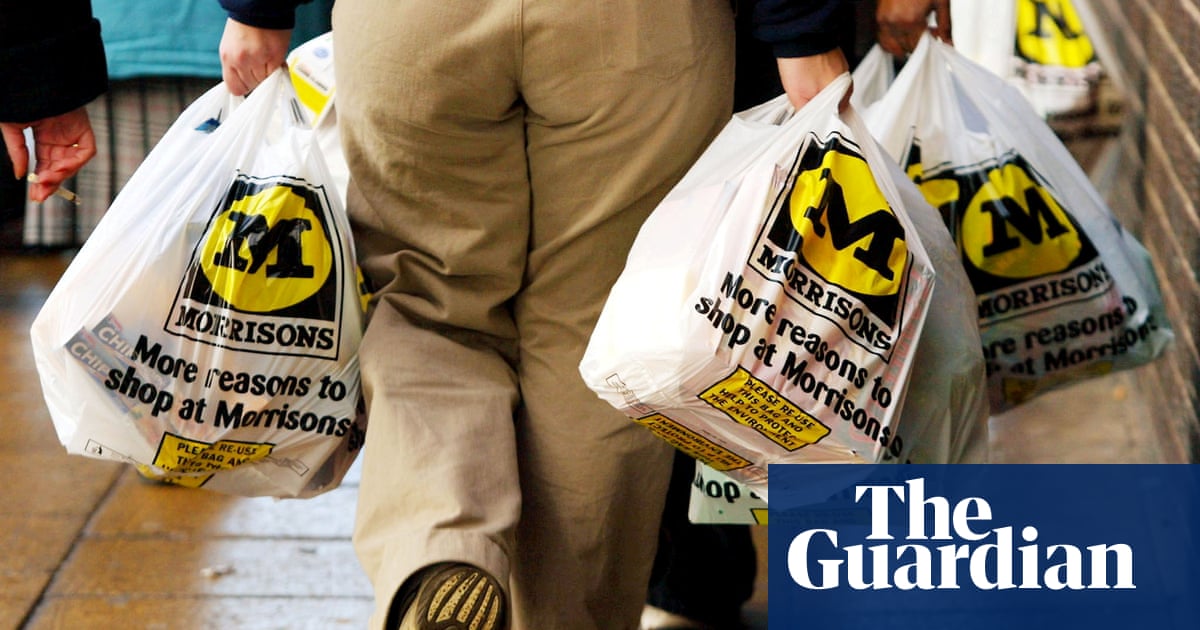
Morrisons is inviting shoppers to management meetings and holding monthly customer roundtables in stores as part of a strategy to “start a new chapter” for the struggling supermarket chain under its new boss.
Rami Baitiéh, who took over from David Potts as the chief executive of Morrisons in November, said he would announce new plans for the business in March, adding that “listening to customers and colleagues will show us the way”.
The Bradford-based chain has struggled amid heavy competition with rivals on price and the cost of servicing heavy debts since its £7bn takeover by the US private equity firm Clayton, Dubilier & Rice in 2021. The German-owned discounter Aldi overtook Morrisons to become the UK’s fourth largest grocer in 2022.
“We are developing plans to reinvigorate, refresh and strengthen Morrisons and to start a new chapter,” said Baitiéh, the former head of the France’s Carrefour chain who has a reputation as a turnaround expert.
“Since the pandemic, Morrisons has not been on peak form. Our market share has slipped slowly and consistently and [underlying] sales have been below the pack for a while,” he said.
Under a new regime intended to draw back shoppers, Baitiéh said Morrisons would not have any major meetings without the presence of a customer panel that could offer insights into where it could improve.
The customers will give views on pricing, service and products at the chain asking questions of management, and being asked their opinions by executives.
Baitiéh said the voice of store managers would also be given more emphasis within the business to gain insight from the shop floor. He said all stores would have monthly shopper roundtables and those that were particularly “challenged” would host one every week.
“We are beginning to have a new mindset in the company, a high performance culture,” he said.
Baitiéh said there was “work to do” on improving quality, price, ranges and profit margins, but he was “confident that Morrisons has the people, the talent, the assets and the desire to chart a bright future in UK grocery”.
Morrisons said on Wednesday that sales had risen 3.3% in the three months to the end of October 2023 on the same period a year earlier – well behind the rate of inflation.
The UK’s fifth largest grocer, which has about 500 supermarkets, said its pace of growth had improved throughout last year so that total sales rose 2.7% to £14.9bn in the year to the end of October.
Underlying sales growth, which excludes the impact of store openings and closures, rose 1.8% for the year, indicating a fall in the amount of goods sold as food price inflation was more than 5% throughout the year.
Annual underlying profits rose 6.5% to £970m, but that figure does not include interest payments on Morrisons’ debts of about £5.5bn, which are thought to top £400m a year.
The chief financial officer, Joanna Goff, said the group had produced a pre-tax profit, before exceptional costs and benefits but declined to give an exact figure. She said the figure was an improvement on the previous year, when the company made a £1.5bn pre-tax loss after finance costs of £593m.
The company said it had raised £450m during the year from the sale and leaseback of assets, including its warehouses, and generated more than £540m of cash.
Earlier this week, the group sold off its petrol forecourts business to sister company MFG for £2.5bn. The deal will hand Morrisons almost £2bn and Goff said the “vast majority” of that would go towards reducing the company’s debt pile, which would in turn reduce interest payments, freeing up cash to invest in prices, ranges and improved stores.
The deal also leaves Morrisons with a 20% stake in MFG and Baitiéh said a plan to install electric car charging points alongside the petrol forecourts near Morrisons stores would help attract shoppers.
About 2,000 workers from the petrol forecourts will also return to Morrisons’ main stores as part of the deal. The forecourts will be run by franchisees.
There had been rumours that the business was considering selling off its food-processing arm, which includes 18 facilities including vegetable packhouses and abattoirs, in order to raise further cash amid rising interest rates on its debts.
However, Baitiéh said that division was central to his plans for the group and gave it a “competitive advantage” against rivals, which did not have equivalent facilities. He said he wanted to make that part of the group more efficient and innovative and highlight its benefits more to shoppers.












